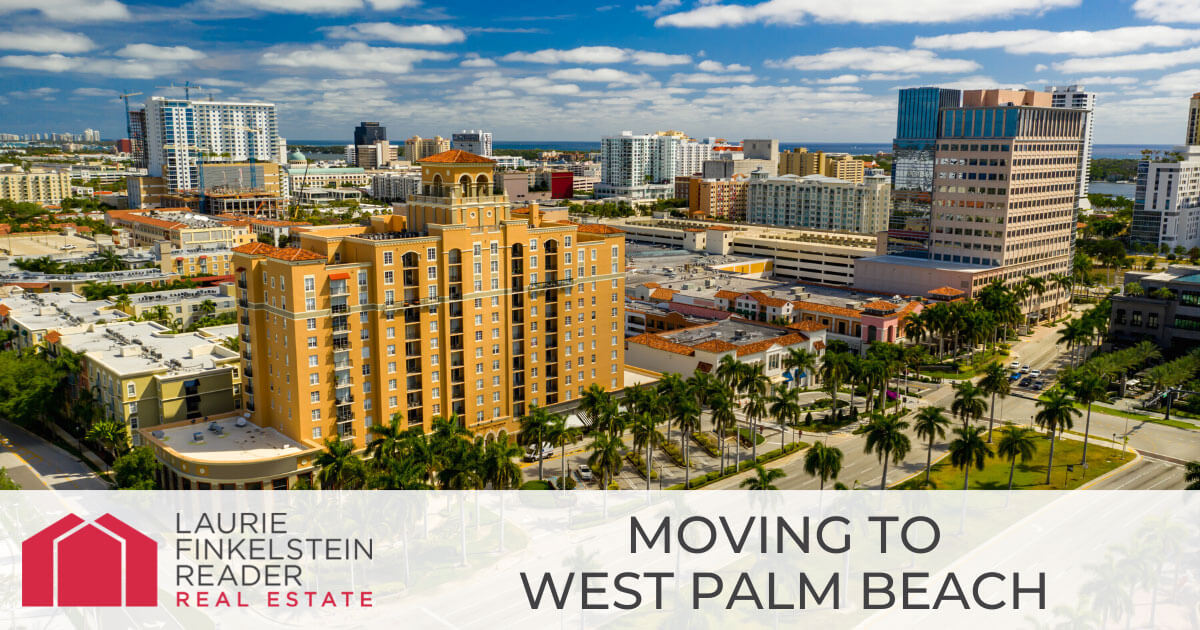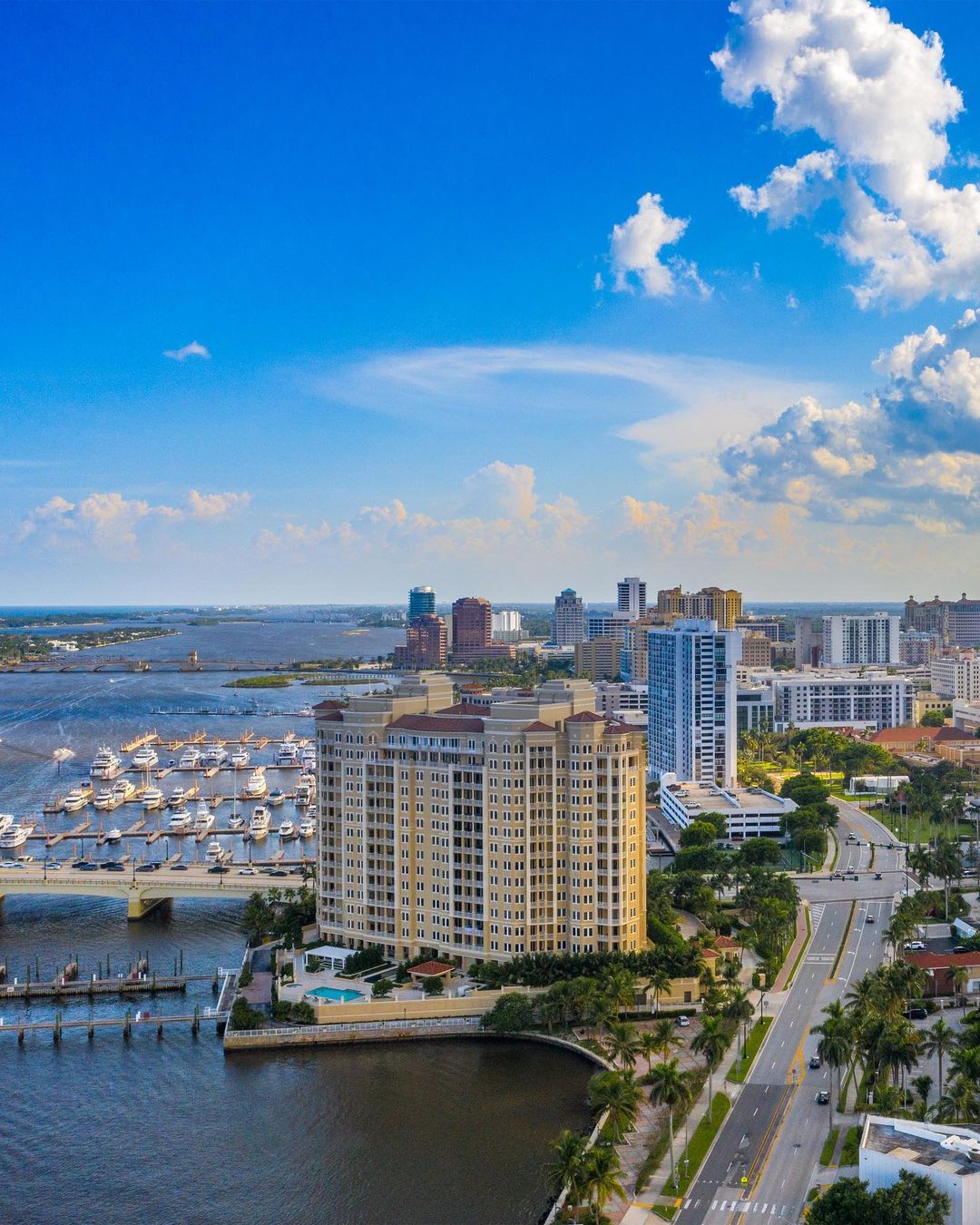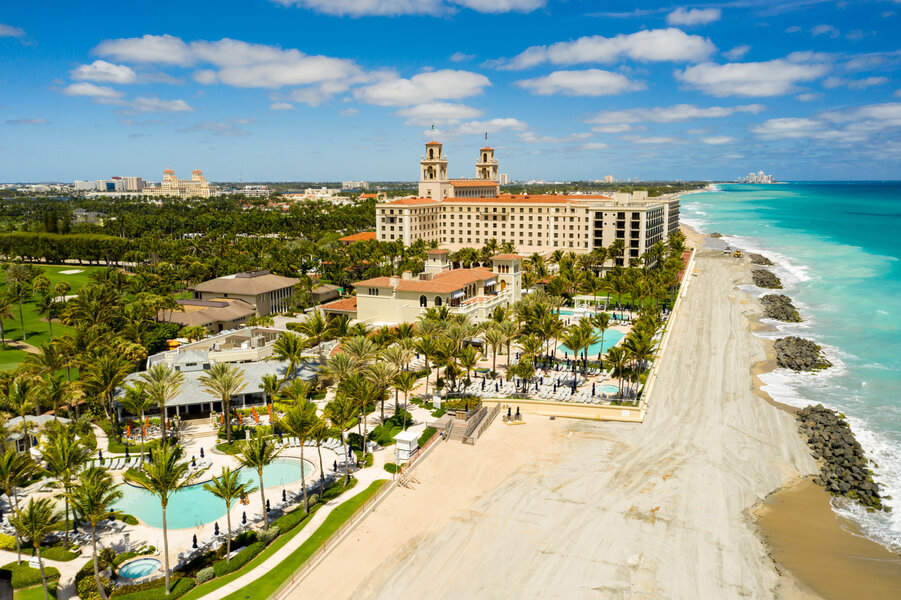Moving From Texas To West Palm Beach
Are you considering leaving the Lone Star State behind and making a fresh start in the Sunshine State? Moving from Texas to West Palm Beach can be a thrilling adventure, offering a unique blend of Southern charm and coastal vibes. As you weigh the pros and cons of this significant life change, it's essential to get familiar with the intricacies of West Palm Beach's lifestyle, housing market, and job opportunities. In this article, we'll delve into the key factors to consider when making the move, helping you make an informed decision about your future in this beautiful Florida city.

- Starting Anew in the Sunshine State: A Guide to Moving from Texas to West Palm Beach
- Is West Palm Beach a good place to move to?
- How much do you need to make to live in West Palm Beach?
- Is it worth going to West Palm Beach?
- Why is West Palm Beach so expensive?
- FAQ
- What are the main differences between Texas and West Palm Beach climates?
- How do the cost of living and housing in West Palm Beach compare to Texas?
- What are the job opportunities like in West Palm Beach compared to Texas?
- How do I navigate the different cultures and lifestyles in West Palm Beach and Texas?
Starting Anew in the Sunshine State: A Guide to Moving from Texas to West Palm Beach
Moving from Texas to West Palm Beach can be an exciting adventure, but it requires careful planning and preparation. Here's a comprehensive guide to help you navigate the transition and make the most of your new life in Florida.
Why West Palm Beach?
West Palm Beach offers a unique blend of urban and coastal living, making it an attractive destination for Texans looking for a change of pace. With its warm climate, rich cultural scene, and thriving economy, West Palm Beach provides endless opportunities for outdoor recreation, cultural exploration, and professional growth. Beach lovers will appreciate the city's stunning coastline, while foodies will enjoy the diverse culinary scene.
Cost of Living: Texas vs. West Palm Beach
One of the primary concerns for anyone considering a move is the cost of living. Compared to Texas, West Palm Beach has a slightly higher cost of living index, mainly due to housing costs. However, the overall cost of living in West Palm Beach is still relatively affordable, especially when you factor in the state's lack of income tax. Here's a breakdown of some key expenses:
| Expense | Texas | West Palm Beach |
|---|---|---|
| Housing | $1,300 - $1,800 | $1,800 - $2,500 |
| Food | $800 - $1,200 | $900 - $1,400 |
| Transportation | $600 - $1,000 | $700 - $1,200 |
| Utilities | $150 - $300 | $200 - $400 |
Job Opportunities in West Palm Beach
West Palm Beach has a diverse economy, with major industries in healthcare, tourism, and technology. The city is also home to a growing startup scene, with many entrepreneurs and small businesses calling West Palm Beach home. If you're looking to make a career change or advance in your current field, West Palm Beach offers a range of job opportunities across various sectors.
Housing Options in West Palm Beach
When it comes to housing, West Palm Beach offers a wide range of options to suit different budgets and lifestyles. From luxury apartments to cozy bungalows, you'll find a variety of properties to choose from. Popular neighborhoods include Downtown West Palm Beach, El Cid, and Flamingo Park. Be sure to research the local real estate market and work with a reputable agent to find your dream home.
Getting Settled in West Palm Beach
Once you've made the move, it's essential to get settled quickly and easily. Here are a few tips to help you get started: Update your driver's license and vehicle registration Register to vote in Palm Beach County Find a new healthcare provider and dentist Explore local amenities and services, such as grocery stores and gyms Get involved in your community by attending local events and joining clubs or organizations that align with your interests
Is West Palm Beach a good place to move to?

West Palm Beach is a popular city located in South Florida, known for its beautiful beaches, vibrant cultural scene, and thriving economy. Whether or not West Palm Beach is a good place to move to ultimately depends on an individual's personal preferences, lifestyle, and priorities. Here are some factors to consider:
Pros of living in West Palm Beach
West Palm Beach offers a unique blend of urban and coastal living, with many benefits, including:
- Beaches and outdoor activities: West Palm Beach has 47 miles of coastline, offering a wide range of water sports, fishing, and beach activities. The city also has several parks and nature reserves, such as the Grassy Waters Preserve and the Mounts Botanical Garden.
- Cultural attractions: West Palm Beach is home to a vibrant cultural scene, with numerous museums, art galleries, and performance venues, including the Norton Museum of Art and the Kravis Center for the Performing Arts.
- Thriving economy: West Palm Beach has a strong economy, with a diverse range of industries, including tourism, healthcare, and technology. The city is also a hub for entrepreneurship, with many startups and small businesses.
Cons of living in West Palm Beach
While West Palm Beach has many advantages, it also has some drawbacks to consider, including:
- Traffic and congestion: West Palm Beach is a popular tourist destination, which can lead to traffic congestion and parking challenges, especially during peak season.
- High cost of living: The cost of living in West Palm Beach is relatively high, with prices for housing, food, and transportation above the national average.
- <strongHurricane risk: West Palm Beach is located in a hurricane-prone area, which can be a concern for some individuals, especially those who are not familiar with hurricane preparedness and response.
Neighborhoods to consider in West Palm Beach
West Palm Beach has a range of neighborhoods to choose from, each with its own unique character and advantages. Some popular neighborhoods to consider include:
- Downtown West Palm Beach: This vibrant neighborhood is perfect for those who want to be in the heart of the action, with access to restaurants, bars, and cultural attractions.
- El Cid: This historic neighborhood is known for its beautiful architecture, tree-lined streets, and family-friendly atmosphere.
- Jupiter: Located just north of West Palm Beach, Jupiter is a popular neighborhood for families and outdoor enthusiasts, with access to beaches, parks, and water sports.
How much do you need to make to live in West Palm Beach?

The cost of living in West Palm Beach, Florida can vary depending on factors such as lifestyle, location, and personal preferences. However, here are some general guidelines to help you estimate how much you need to make to live comfortably in West Palm Beach:
Housing Costs
One of the biggest expenses in West Palm Beach is housing. The median home price in West Palm Beach is around $340,000, which translates to a mortgage payment of around $1,600 per month. Renters can expect to pay around $1,300 per month for a one-bedroom apartment.
Median home price: $340,000
Mortgage payment: $1,600 per month
Rent: $1,300 per month for a one-bedroom apartment
Transportation Costs
West Palm Beach has a well-developed public transportation system, but many residents still prefer to own a car. If you plan to buy a car, you can expect to pay around $500 per month for a loan payment, insurance, and gas. If you prefer to use public transportation, a monthly pass costs around $70.
Car loan payment: $300 per month
Insurance: $100 per month
Gas: $100 per month
Public transportation: $70 per month
Food and Other Expenses
Food prices in West Palm Beach are slightly higher than the national average. You can expect to pay around $15 per meal at a mid-range restaurant, and around $100 per week for groceries. Other expenses such as entertainment, healthcare, and savings should also be factored into your budget.
Meal at a mid-range restaurant: $15 per meal
Groceries: $100 per week
Entertainment: $500 per month
Healthcare: $300 per month
Savings: 10% to 20% of your income
Is it worth going to West Palm Beach?

West Palm Beach, located in Palm Beach County, Florida, is a popular tourist destination known for its beautiful beaches, vibrant cultural scene, and diverse outdoor activities. Whether you're looking to relax on the beach, explore the local art scene, or enjoy some thrilling water sports, West Palm Beach has something for everyone.
Beaches and Outdoor Activities
One of the main attractions in West Palm Beach is its stunning beaches. With 47 miles of coastline, you'll find plenty of opportunities to soak up the sun, take a dip in the ocean, or try your hand at water sports like surfing or paddleboarding. If you're looking for more adventure, you can explore the nearby Grassy Waters Preserve or take an airboat tour of the Everglades.
- Beach activities: swimming, sunbathing, surfing, paddleboarding, kayaking
- Outdoor adventures: hiking, biking, airboat tours, Everglades exploration
- Nature reserves: Grassy Waters Preserve, Apoxee Wilderness Trail
Cultural Attractions and Events
West Palm Beach is also home to a thriving cultural scene, with a variety of museums, galleries, and performance venues. The Norton Museum of Art is a must-visit, featuring a collection of over 8,000 works of art. If you're looking for some live music or theater, you can catch a show at the Kravis Center for the Performing Arts. Throughout the year, West Palm Beach hosts various festivals and events, including the West Palm Beach Boat Show and the Palm Beach International Film Festival.
- Museums and galleries: Norton Museum of Art, Palm Beach Photographic Centre, Whitespace Collection
- Performance venues: Kravis Center for the Performing Arts, Dreyfoos Hall, Harriet Himmel Theater
- Festivals and events: West Palm Beach Boat Show, Palm Beach International Film Festival, SunFest
Dining and Shopping
When it comes to dining, West Palm Beach offers a diverse range of options, from fresh seafood to international cuisine. You can find everything from casual beachside eateries to upscale restaurants in the downtown area. If you're looking to shop, you'll find a variety of boutiques and malls, including the iconic Worth Avenue and the Palm Beach Outlets.
- Dining options: seafood, international cuisine, beachside eateries, upscale restaurants
- Shopping districts: Worth Avenue, Clematis Street, Palm Beach Outlets
- Boutiques and malls: The Gardens Mall, CityPlace, Legacy Place
Why is West Palm Beach so expensive?

West Palm Beach is considered an expensive city in the United States, and there are several reasons contributing to its high cost of living. Here are some key factors:
Proximity to Luxurious Amenities and Tourist Attractions
One of the main reasons West Palm Beach is expensive is its proximity to luxurious amenities and tourist attractions. The city is surrounded by upscale neighborhoods, golf courses, and beaches, making it a desirable location for those who can afford it. Additionally, West Palm Beach is close to popular tourist destinations like Palm Beach Island and the Breakers resort, which drives up the cost of living. As a result, housing prices, transportation, and food costs are higher in the area.
Housing Market and Property Taxes
The housing market in West Palm Beach is highly competitive, which drives up prices for both renters and homeowners. The median home price in West Palm Beach is around $340,000, which is significantly higher than the national average. Furthermore, property taxes in Palm Beach County are among the highest in the state of Florida. This means that homeowners in West Palm Beach pay more in property taxes, which contributes to the overall cost of living.
Growing Economy and Job Market
West Palm Beach has a thriving economy, with a strong job market and a growing tech industry. While this is a positive factor for the city's residents, it also drives up the cost of living. As more companies and startups move to the area, the demand for housing and services increases, causing prices to rise. Additionally, the city's growing economy attracts high-skilled workers who are willing to pay a premium to live in the area, further driving up costs.
Some of the key expenses that contribute to the high cost of living in West Palm Beach include:
- Housing costs: The median rent for a one-bedroom apartment in West Palm Beach is around $1,800 per month, and the median home price is over $340,000.
- Food prices: Eating out in West Palm Beach can be expensive, with the average cost of a meal at a mid-range restaurant being around $20 per person.
- Transportation costs: Gas prices in West Palm Beach are higher than the national average, and the city's traffic congestion means that residents may need to budget more for transportation costs.
FAQ
What are the main differences between Texas and West Palm Beach climates?
When moving from Texas to West Palm Beach, one of the most significant changes you'll notice is the climate. Texas is known for its hot and dry desert climate, with very little humidity and mild winters. West Palm Beach, on the other hand, has a tropical savanna climate, characterized by high humidity and warm temperatures year-round. Be prepared for more rain and thunderstorms in West Palm Beach, especially during the summer months. This change in climate may take some getting used to, especially if you're not accustomed to the humidity.
How do the cost of living and housing in West Palm Beach compare to Texas?
The cost of living and housing in West Palm Beach is generally higher than in Texas. According to recent data, the overall cost of living in West Palm Beach is about 25% higher than in Texas. Housing prices, in particular, can be steeper in West Palm Beach, with the median home price being around $340,000 compared to around $240,000 in Texas. However, it's essential to consider that West Palm Beach has a stronger economy and higher average salaries, which can help offset the increased cost of living.
What are the job opportunities like in West Palm Beach compared to Texas?
West Palm Beach has a thriving economy, with a strong presence of industries such as healthcare, technology, and tourism. While Texas is known for its oil and gas industry, West Palm Beach offers a more diversified job market. You may find more job opportunities in fields like hospitality, finance, and entrepreneurship in West Palm Beach. Additionally, the city is home to a growing startup scene, making it an attractive location for entrepreneurs and small business owners.
Both Texas and West Palm Beach have their unique cultural identities. Texas is known for its cowboy culture and Southern hospitality, while West Palm Beach has a more coastal, laid-back vibe. One of the most significant differences you'll notice is the pace of life. West Palm Beach tends to be more relaxed and casual, whereas Texas can be more fast-paced and energetic. To navigate these differences, be open to trying new things and embracing local customs. Attend local events, try new restaurants, and engage with your community to get a feel for the local culture.